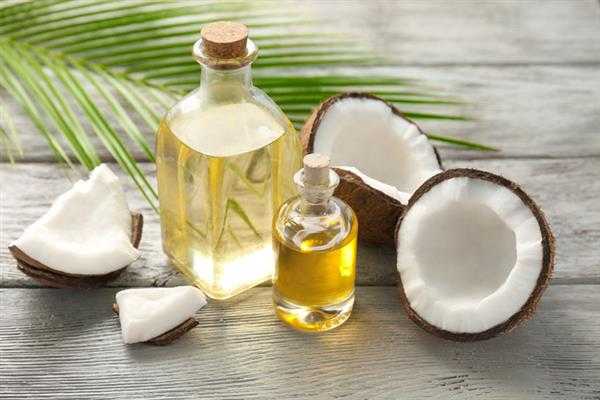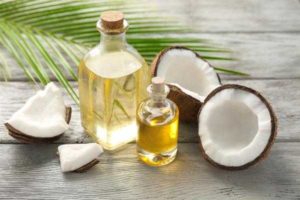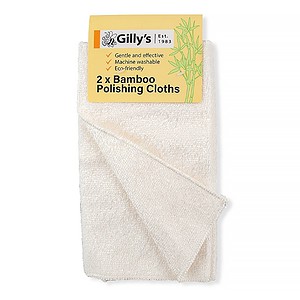BEST WAY TO CARE FOR YOUR CHOPPING BOARDS AND KITCHEN UTENSILS
After working with wood for over 30 years and my own testing oiling chopping boards I have done extensive research into the best oils and food safe finishes to use when oiling cutting boards, chopping boards and kitchen utensils. There is a lot of confusion out there. Chopping Board Oils need to be selected carefully as not all oils are the same and some can go rancid.
In this blog entry I answer the following questions for you.
- How do I care for my chopping board to keep it looking great?
- What are the best Chopping Board Oils? – Best Natural oils that are safe and won’t go rancid.
- What natural oil is best to seal wooden kitchen utensils & where can you buy it in Australia?
- Can I use cheap oils from the supermarket to oil my cutting board?
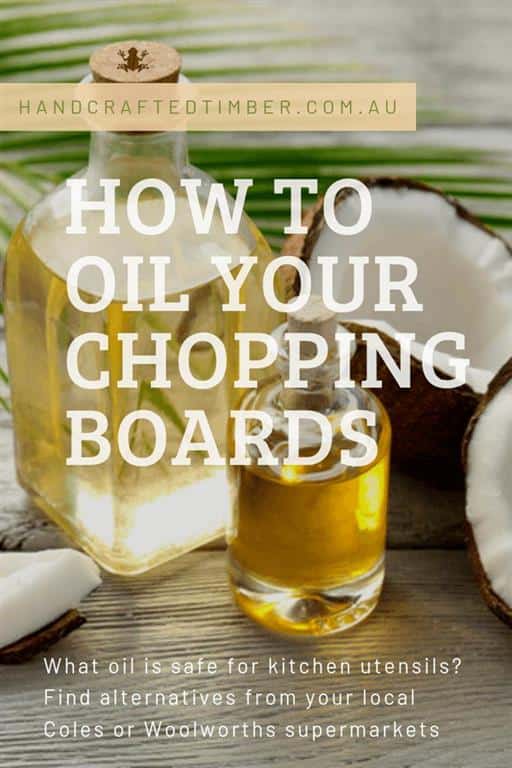
What chopping board oils are safe to be in contact with food?
What oils are ALL natural?
If you have questions about which oils to use on your wooden kitchen items you’ve come to the right place. I will answer these questions below. These care instructions provide a list of safe oils you can use on your cutting boards and any wooden utensils you have in your kitchen. Even on a budget!
Does anyone in your family have allergies?
*If you have any allergies please research safe oils for wood by using my links in the headings below then decide which oil is best for your situation. This list is updated as I personally test chopping board oils in my own kitchen and do more research.
Allergy Warning
*These options are advice only and your unique circumstances may be different.
For example Peanut Oil is not a good option for those allergic to nuts.
Caring for your Chopping Boards
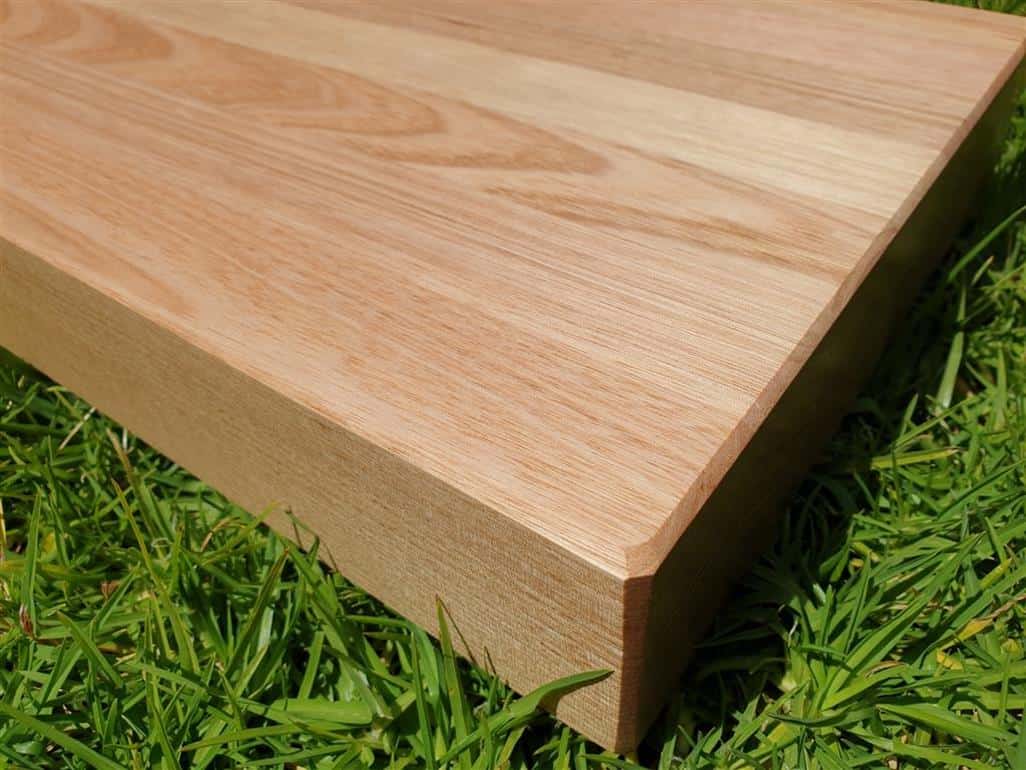
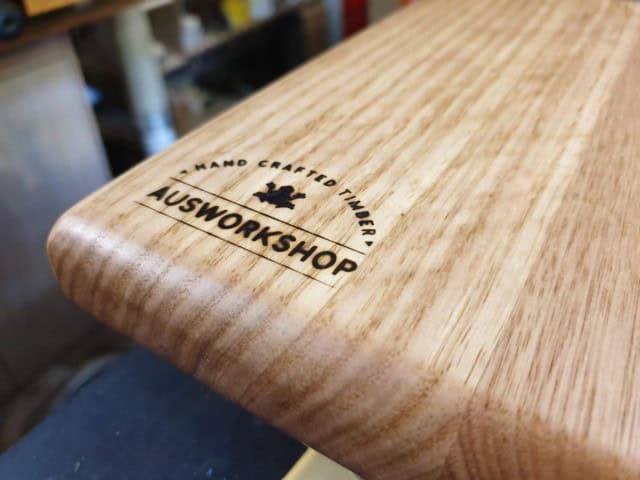
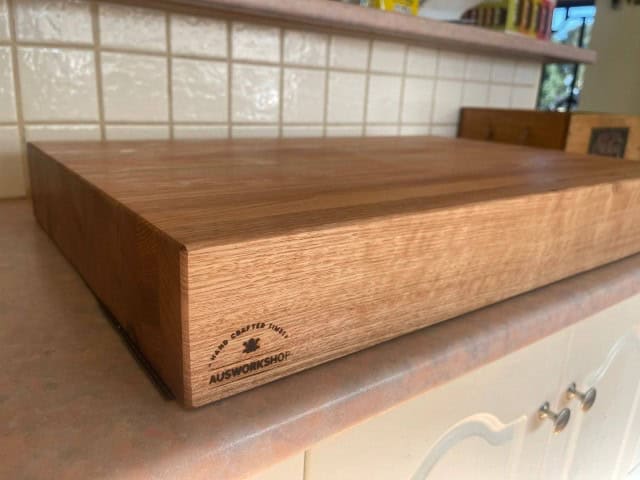
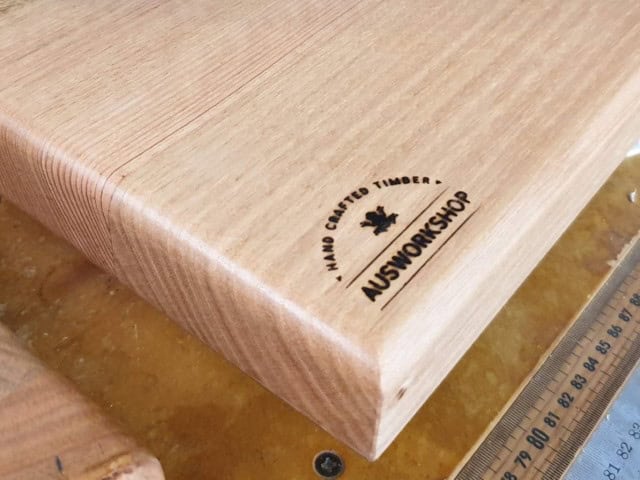
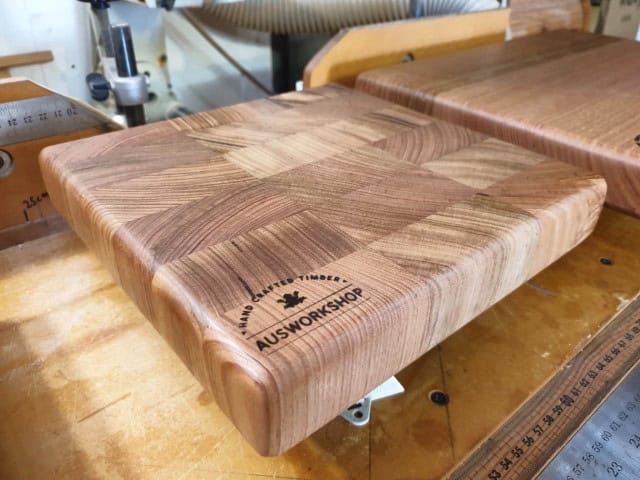
I’d received a few emails asking what oil is best to use for care and maintenance of my chopping boards, so rather than re-write most of it I thought I’d paste it here for all to read. Part of this text is from my email reply to a happy owner of one of my Australian timber chopping boards.
CHOPPING BOARD MAINTENANCE – A quick guide
- NO DISHWASHER – Make sure nobody puts it in the DISHWASHER as this will dry out the wood fibres and may cause it to warp or split. Your chopping board won’t last as long if you do this.
- Wipe it down after use.
We just wipe ours clean with a damp cloth when needed, it stays on the bench, has quite a few cuts on the surface now from making sandwiches over the years but it just adds a bit of character, can’t worry too much as that’s what it’s for.
As long as you don’t leave stuff on there to dry crusty I think that’s the best way to look after them.
Wet chopping boards need to be put up on edge to allow both sides to dry. - How safe are wooden cutting boards?
Wood is the safest cutting board, in my opinion, plastic boards trap moisture and germs breed like crazy in the cuts. - Can I cut Meat on it?
Of course you can – Butchers have used Ash and Oak for cutting meat on for 1000’s of years, as long as it’s wiped then allowed to dry it should be fine, even if it does get a bit stained sometimes. Just remember the rules when handling raw meat.
DO I REALLY NEED TO USE OIL?
Some people don’t use any oil at all, eventually the wood will dry out and split a little bit, especially if it’s used a lot and has a lot of cuts on it. Wood is the safest option for cutting boards as these cuts can dry out and don’t trap moisture, wood breathes and is a lot safer than plastic cutting boards and much better for your knives than glass! By regularly applying oil to the wood (when it’s fully dry) you can help prevent moisture or germs from breeding deep in the cuts and wood fibres.
WHAT CHOPPING BOARD OIL IS BEST?
It’s always best to buy a ready made oil that is especially suited and food safe to protect your chopping boards and wooden kitchen utensils. Although there are some cheap chopping board oil alternatives in my list mentioned below.
What do I use for oiling my chopping boards?
What do I use in my kitchen for maintaining my wooden cutting boards, kitchen utensils and chopping boards?
I’m always looking for the easiest solution otherwise I tend not to do it enough.
For this reason I recommend you grab a small bottle of Gilly’s chopping board oil by clicking the link below.
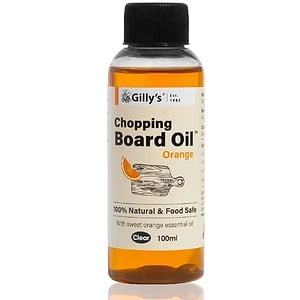
Gilly’s Chopping Board Oil is great for all your kitchen utensils and woodwares.
Gilly’s Chopping Board Oil – I find this small bottle of food-grade oil is best for maintaining wooden chopping boards, spoons, spatulas and any other wooden kitchen utensils. It has a nice fresh orange aroma and has rave reviews.
Keep a bottle handy in your kitchen! Hurry while stocks last!
Purchase your very own bottles here in My Shop, for a bargain price, only $10.60 postage no matter how many you get.
- I use Livos Countertop Oil on the wood to seal it when I make them, that’s the best hardwax oil I’ve ever tried and it’s fully natural, unlike others that have poisons & drying agents even though they claim to be all natural.
So you could always buy a tin of this if you make wooden chopping boards or you have some raw unfinished boards you need to finish but there are some alternatives below that are easy to find at your local supermarkets or chemists.
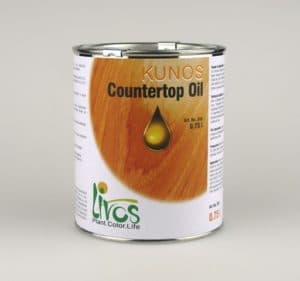
4 CHEAP OIL OPTIONS FOR SEALING WOODEN CUTTING BOARDS
- Canola Oil – Some people rub this on every now and then but I’ve heard mixed reports – some say it goes rancid eventually. This is the same with most vegetable oils so be careful. But if it’s getting constant use and not left sitting in a damp dark cupboard for 6 months you might be fine with this oil. Personally I don’t like to risk it. Food poisoning can be horrible!
- Grapeseed Oil is better, less likely to go rancid.
This is a great natural chopping board oil & available in most supermarkets such as Coles, Woolworths or IGA.
A safer option bust still some risk. - Coconut Oil Is great for use on chopping boards any many other uses (see below). In our cold winter it is solid in the jar though so you need to heat it first to make it liquid, easily done with a hair dryer on the board while you rub it in with your hand being careful not to overheat.
I’ve been using it on pine chopping boards and the Beard Combs and it adds a nice colour which is surprising because it looks white in the jar when solid. It’s also totally natural, edible, anti-fungal, anti-bacterial, so I think it’s possibly the best choice I’ve come across at the local shops. Coconut Oil has many uses & benefits to your health but there are some things you may not be aware of so it might not be the best long term.
If you would like to learn more about the health effects (and topical uses!) of coconut oil, its potential benefits and downsides, and its components such as lauric acid and MCTs.
please visit Gerard’s helpful website called ManyEats. A wealth of information!
https://manyeats.com/health-effects-of-coconut-oil/ Liquid Paraffin Oil – Also called Mineral Oil
The chopping board oil many woodworkers use and recommend is Liquid Paraffin Oil, also known as Mineral Oil a highly refined petroleum product (processed – not natural). Sold in the chemist as a laxative so it is safe to use on chopping boards however I have stopped using it in my woodworking for a number of reasons.
It’s a liquid so it’s sold in a bottle usually.
I used to use it on all my chopping boards but these days I’ve gone more for natural oil products, that work better rather than products from industries that are bad for the environment.
(PETROLEUM PRODUCT WARNING!)
It also stays liquid, it doesn’t seem to set like a hard wax oil so this means it is not protecting the wood as much and tends to continue soaking in, it never seems to dry so the board stays oily and needs re-applying often as it tends to migrate deeper into the fibres or wear off faster than orange or citrus based oils do. Use this oil if you want to but don’t say I didn’t warn you. It can go blotchy and seep back out to the timber grain all the time and is annoying to clean up. On some timbers it stays greasy and never dries.
Conclusion
Your best bet is to use an oil that is all natural, great for your health and the environment.
Not something that is just cheap and easy to buy locally.
Order a small bottle of the best chopping board oil online from me and you’ll have a bottle handy in your kitchen for many years to come.
Posting out each week day, so you’ll have it in no time!
Don’t forget to pick up a 2-pack of my highly recommended lint free cloths to easily apply the oil to your chopping board. Saves you looking for a decent rag, not all rags work well I’ve found.
These cloths are washable making them reusable and great for the environment, just throw them in your machine and re-use them over and over.
You get 2 in a pack so they are great value for money too!
Hopefully that helps answer some of your questions about the best oils for chopping boards and I haven’t confused you with all my rambling on!
Still have questions?
Please contact me if you have any questions about your wooden kitchen items or would like to order a custom made chopping board to fit a stove top or a certain size you need.
With a little care you will continue to enjoy beautiful wooden kitchen wares in your kitchen for many years to come.
If you appreciate the information I provided here please consider making a purchase from my shop, every little bit helps me to continue to provide hand made environmentally friendly Australian Made wood products.
Andrew Wilkerson
